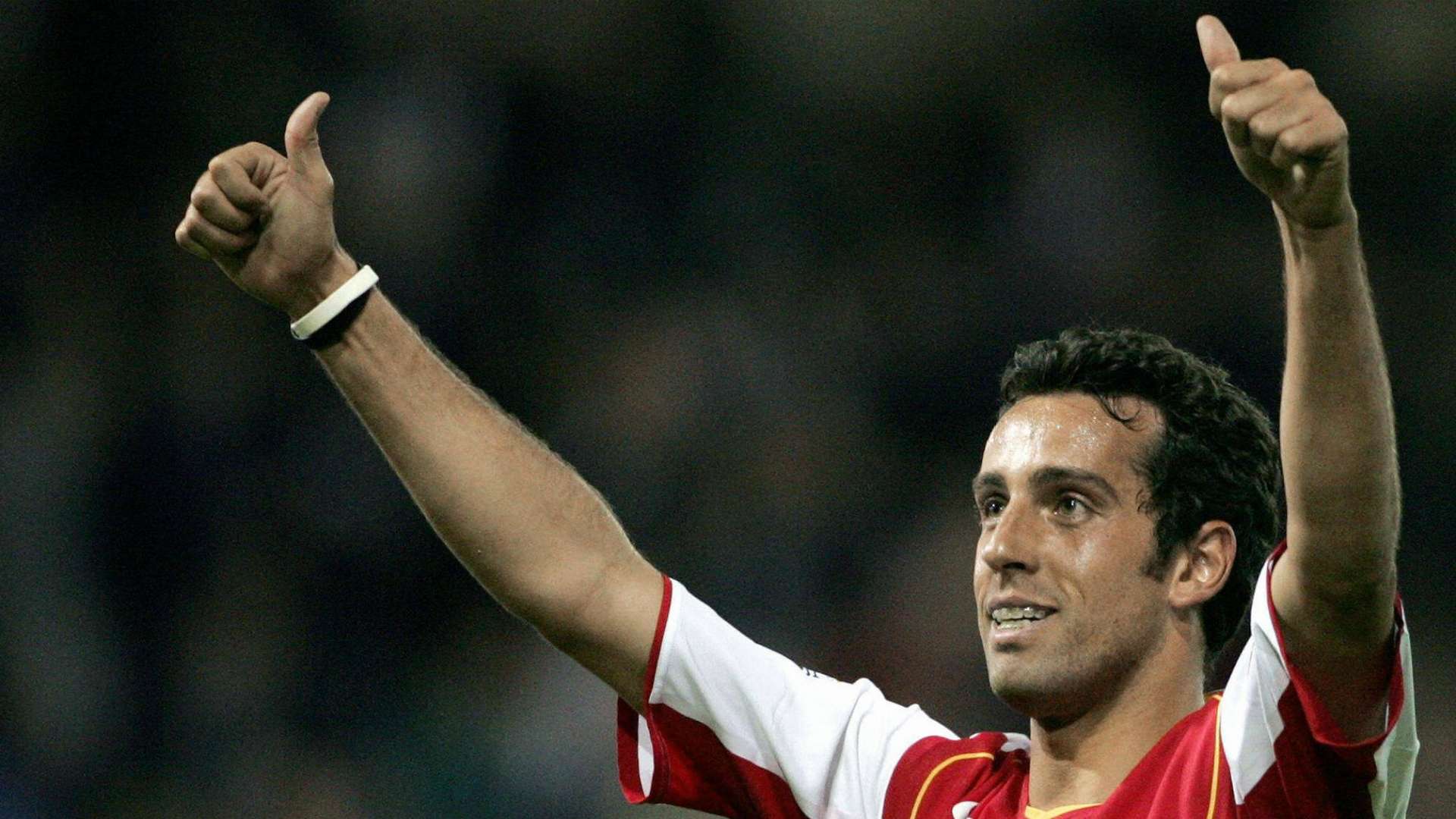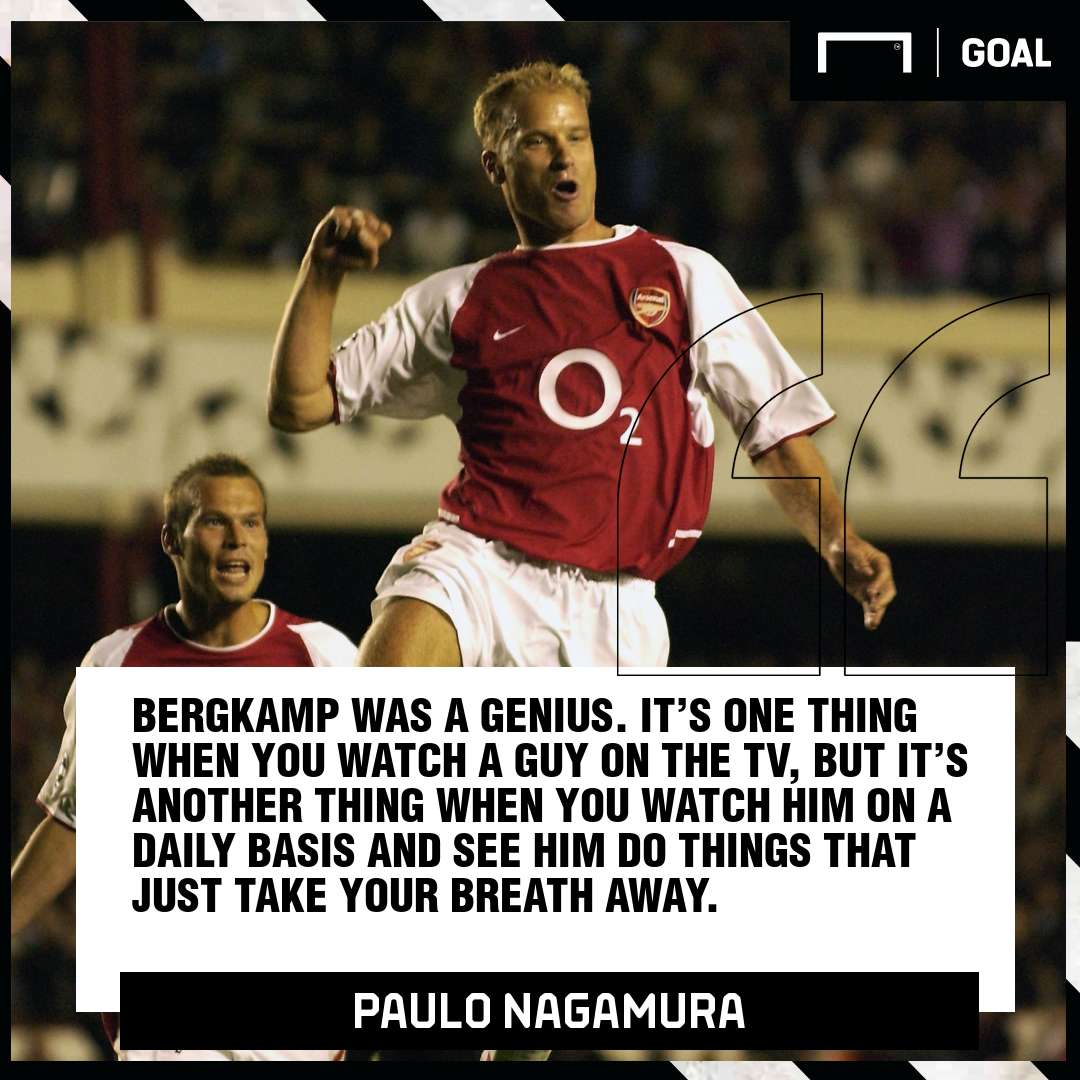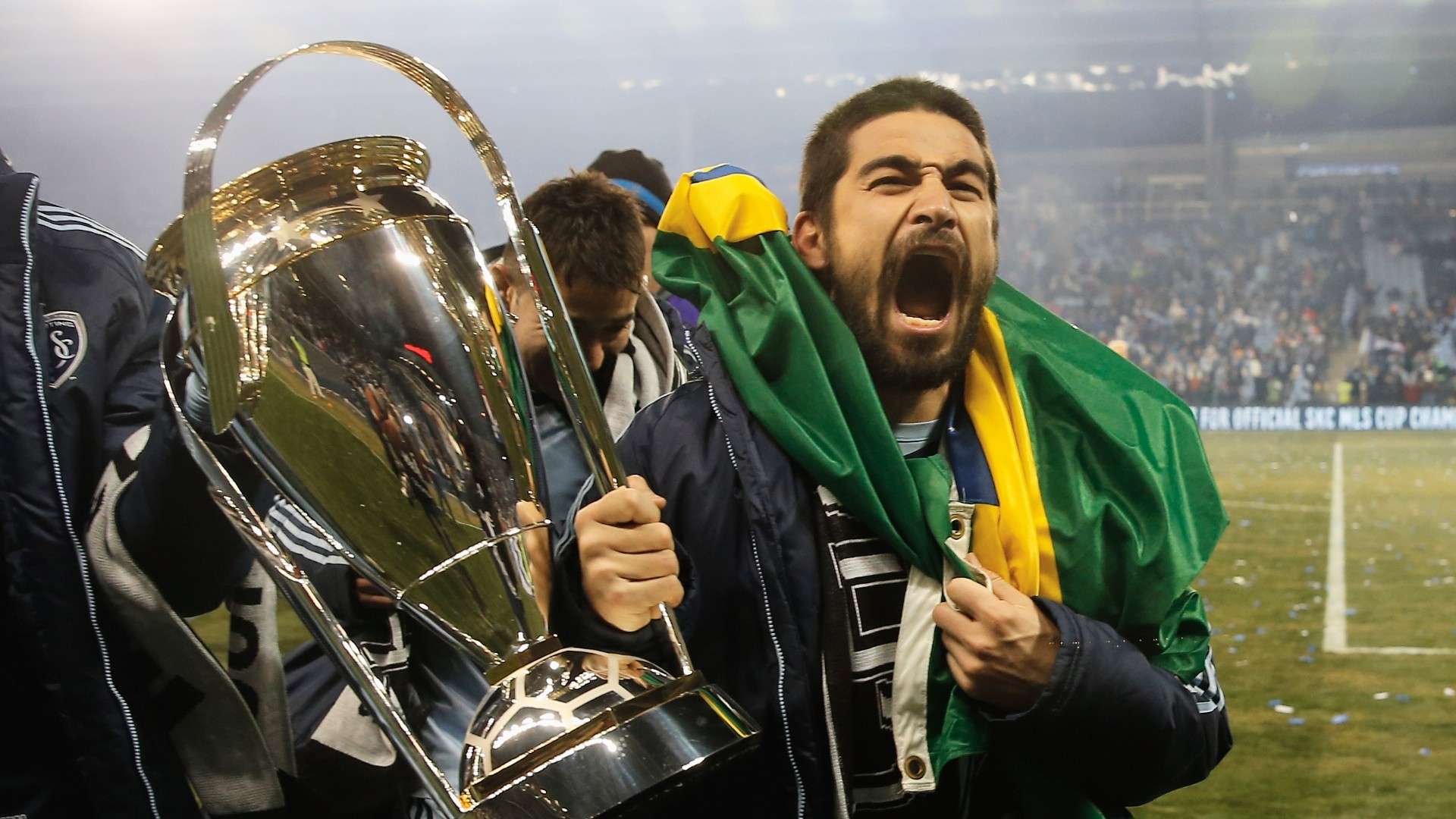There’s a prestigious line of Brazilians who have etched their names into Arsenal history.
Sylvinho was the first. Then came Edu and Gilberto Silva, both of whom went on to collect a glittering haul of trophies during their successful spells in north London under the guidance of Arsene Wenger.
There are others who may not have scaled such heights, such as Denilson, Julio Baptista and Andre Santos, but they all had their moments at the Emirates before moving on to continue their careers elsewhere.
There is one Samba star, however, whose three-year stay at Arsenal went by relatively unnoticed.
In fact, if you search for the name Paulinho on the internet, you will barely find a mention of the Brazilian midfielder who made the move to north London as a 17-year-old.
Next Match
Type in the name Paulo Nagamura, however, and the mystery soon becomes clear.
"I was always known by my nickname 'Paulinho' in my Arsenal days," the 36-year-old Nagamura reveals during an exclusive interview with Goal.
"After I left, my agent thought that it was too diminutive and wanted to change it. Nagamura is my last name, so I stuck with it.
"So, not many people recognise me as the Paulinho from Arsenal; you have to dig deep to find who that guy was."
Nagamura arrived at Arsenal in 2001 from Sao Paolo, but left three years later without having made a single senior appearance for the club.
On the face it, the move appears like it was a failure. For Nagamura, however, those three years laid the foundations for a hugely successful career on the opposite side of the Atlantic in Major League Soccer – one that saw him win five titles with LA Galaxy and Sporting Kansas City.
“Those were three very important years of my career,” explains the current head coach of Swope Park Rangers, who will soon rebrand as Sporting Kansas City II.
“Even though I didn’t get many opportunities to play with the first team at Arsenal, that time prepared me for the career I had ahead.”
Nagamura was first spotted by Liam Brady as a 17-year-old while playing for Sao Paolo against the Gunners in a youth tournament in Amsterdam.
He, along with his team-mate Juan, were signed in a double deal and moved to England in the summer of 2001 to join up with Arsenal's Under-19s.

“It was just a dream come true for us,” Nagamura gushes. “It was a big change in culture for us, so I was glad Juan was there and we had each other.
“Edu was also there at the time and we were always with him whenever he was free. He would take us to his home and have his wife make lunch and dinner for us because he knew what type of life we had.
“It’s tough for young South Americans living in a different country and not having their parents or family with them. He did a great job of really looking after us in London and we really appreciated that because he made our lives much better.
“I’m very happy to see him [Edu] back at Arsenal now. I’ve always followed his career. I’ve lost contact with him a little bit, but I’m always cheering for him to have a successful time wherever he goes.”
Nagamura arrived at a time when Arsenal had gone three years without success in the Premier League.
Having won the double in 1998, Wenger’s side had seen Manchester United regain their position as top dogs in England – but that was all about to change.
Alongside the signings of Nagamura and Juan, there had been some high-profile additions to the senior squad, most notably Sol Campbell, who had joined on a free transfer from Spurs.
Wenger had built a squad he felt was capable of dethroning United and Arsenal would go on to do exactly that, winning the double in 2002 and then going through an entire Premier League season unbeaten to lift the title once again in 2004.
Nagamura played no part in either success, but the experience of working so closely with the likes of Thierry Henry, Dennis Bergkamp and Robert Pires during that period still lives long in his memory.
“I still can’t describe what it was like,” he admits. “I had been watching players like Henry, Bergkamp and Pires on TV back in Brazil saying ‘Oh my God, look at those players’ and then in a matter of months, I was right there training with them, competing with them and learning from them as well.

“I’m just so fortunate to have had that experience because that group was unbelievable. I spent most of my time with the Under-19s and the reserves, but the times that I trained with the first-team it was like ‘What the heck – look at those guys!'
“Just watching Bergkamp control the ball, his unbelievable technique... The explosion of Henry, the intelligence of Pires and the leadership from Vieira, Seaman, Adams.... Those are just things you can’t forget!"
Given the number of world-class player who were at Arsenal at the time, you would think it might be difficult for Nagamura to pick out one who stood out above all the rest.
That, however, is not the case.
“Bergkamp was by far the best," he enthuses. "He was a genius. It’s one thing when you watch a guy on the TV, but it’s another thing when you watch him on a daily basis and see him do things that just take your breath away.
“The things he used to do were so complicated for every other player, but for him it was all so simple. The technique, the control, the intelligence, the vision, the awareness of where he was on the field. He was the complete package that nowadays is so hard to find.”
In his first season in north London, Nagamura helped Arsenal U19s win the title. Both he and Juan then moved up to play with the reserves, but although Juan went on to make a couple of senior appearances, Nagamura couldn’t force his way into Wenger’s plans.
He did appear during pre-season in 2002 and even scored in a 6-1 win at Stevenage. It wasn’t enough, however, with competition for places at Arsenal fierce during a period when the Gunners dominated English football.
“That group was so special,” he points out. “It was just so hard to break though. There were so many talented players in the youth system at the time who never made it. We all had to go somewhere else because the standard was so high.
“We had Steven Sidwell, David Bentley, Graham Barrett, Juan, Jermaine Pennant. There was a lot of good young players there, but you had to be really, really special to make it to that team.”

By the time Nagamura entered the final year of his contract during the 2003-04 season, he knew he would be leaving north London at the end of the campaign.
He had offers to stay in England in the lower leagues or to move to mainland Europe, but he opted to return to Brazil to recover from an injury he suffered towards the end of his time with Arsenal.
An opportunity then arose with LA Galaxy in MLS. He made the move in March 2005 and other than a brief stint with Tigres in Mexico in 2010, he has remained in America ever since.
“I knew that my time at Arsenal was done,” he confesses. “Those three years were amazing. I have nothing negative to say about that club. They were so good with me, but I just decided to try a different route.
“I had different offers when I left, but the one in the States in MLS was different. I’m the type of guy that likes a challenge and I’m really glad I took that challenge. It worked out well for me.”
In his first season with LA, Nagamura won the Western Conference Championship, the MLS Cup and the Lamar Hunt US Open Cup.
He left in 2006, just before David Beckham’s arrival, and had spells with Toronto, Chivas and Tigers before signing for Sporting Kansas City in 2012.
He would go on to add another MLS Cup success to his collection a year later as well as two more Lamar Hunt US Open Cups.
“At Sporting, I found a home,” he says. “The club is a very good club, well structured. It has a great stadium and a great fanbase. I found myself here.
“It was a win-win for both myself and the club and we were able to have a very good team and won three championships in five years.
“In all, I played 12 years here in MLS. I won five championships with two different clubs, so I believe it was a successful career and I go back to what I said earlier, it was mainly because of those three years in Arsenal.
“I had so many adversities to overcome in London that definitely made me a better person and a better player."


